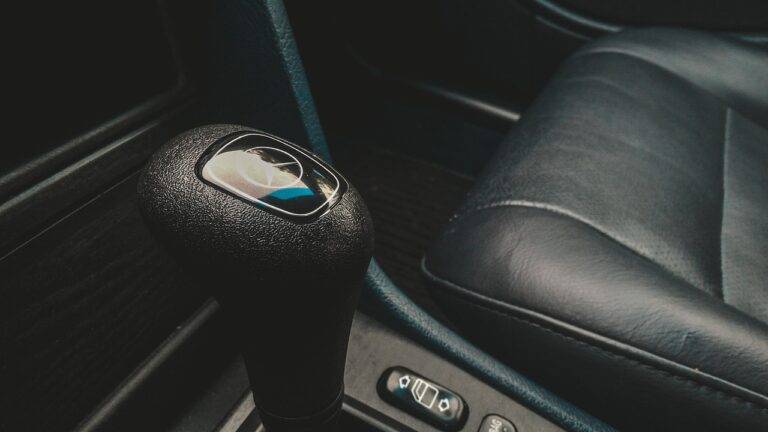The Role of Artificial Intelligence in Predictive Maintenance for Cars: Betsbhai9, Radha exchange, Lotus 365 login
betsbhai9, radha exchange, lotus 365 login: Artificial intelligence (AI) has rapidly transformed various industries, including automotive, with predictive maintenance being one of the crucial areas where AI plays a significant role. Predictive maintenance in cars involves using AI algorithms to predict when a car component is likely to fail so that maintenance can be performed proactively, preventing costly breakdowns and increasing the lifespan of the vehicle. In this blog post, we will explore the role of artificial intelligence in predictive maintenance for cars and how it is shaping the future of the automotive industry.
Detecting Anomalies and Patterns
One of the key ways AI contributes to predictive maintenance in cars is by detecting anomalies and patterns in the data collected from the vehicle’s sensors. By analyzing this data, AI algorithms can identify trends that may indicate potential issues with the car’s components, such as the engine, transmission, or brakes. This proactive approach allows mechanics to address problems before they escalate into serious and costly repairs, ultimately increasing the reliability of the vehicle.
Optimizing Maintenance Schedules
AI algorithms can also optimize maintenance schedules by taking into account various factors, such as the car’s usage patterns, driving conditions, and environmental factors. By analyzing this data, AI can predict when a particular component is likely to fail and recommend maintenance tasks accordingly. This predictive approach not only saves time and money but also ensures that the car is always in optimal condition, reducing the risk of unexpected breakdowns.
Improving Efficiency and Cost-Effectiveness
Predictive maintenance powered by AI can significantly improve the efficiency and cost-effectiveness of maintenance operations in the automotive industry. By identifying potential issues before they become critical, mechanics can plan their work more effectively, order necessary parts in advance, and allocate resources efficiently. This proactive approach reduces downtime, increases productivity, and ultimately leads to cost savings for both car owners and service providers.
Enhancing Safety and Reliability
AI-driven predictive maintenance not only improves the efficiency of maintenance operations but also enhances the safety and reliability of cars on the road. By identifying and addressing potential issues early on, AI algorithms help prevent accidents and breakdowns, ensuring that drivers and passengers can travel safely and comfortably. This proactive approach to maintenance ultimately increases the overall reliability of the vehicle, providing peace of mind to car owners.
The Future of Predictive Maintenance in Cars
As AI technology continues to evolve and become more sophisticated, the future of predictive maintenance in cars looks promising. AI algorithms are becoming increasingly accurate at predicting component failures, optimizing maintenance schedules, and enhancing the efficiency of maintenance operations. With the integration of AI-powered predictive maintenance systems in cars, we can expect to see a significant reduction in breakdowns, increased cost savings, and improved safety and reliability on the roads.
FAQs
Q: How does AI collect data from cars for predictive maintenance?
A: AI collects data from cars through sensors embedded in various components, such as the engine, transmission, brakes, and tires. These sensors capture information about the car’s performance, usage patterns, and environmental conditions, which is then analyzed by AI algorithms to predict potential issues.
Q: Can AI predict all types of maintenance issues in cars?
A: While AI algorithms are capable of predicting a wide range of maintenance issues in cars, there are certain limitations to consider. AI may not be able to predict sudden and unforeseen events, such as accidents or vandalism, which require immediate attention and cannot be anticipated through data analysis alone.
Q: Will predictive maintenance replace traditional maintenance practices in the automotive industry?
A: Predictive maintenance powered by AI is not intended to replace traditional maintenance practices but rather to complement them. While AI can predict potential issues before they occur, regular inspections and proactive maintenance by experienced mechanics are still essential for ensuring the overall health and longevity of a car.
Q: How can car owners benefit from AI-driven predictive maintenance?
A: Car owners can benefit from AI-driven predictive maintenance by experiencing fewer breakdowns, lower maintenance costs, increased safety on the road, and improved overall reliability of their vehicles. By leveraging AI technology, car owners can ensure that their vehicles are always in optimal condition and perform at their best.
In conclusion, artificial intelligence is revolutionizing predictive maintenance in cars by enabling proactive identification of potential issues, optimizing maintenance schedules, improving efficiency and cost-effectiveness, enhancing safety and reliability, and shaping the future of the automotive industry. With AI-powered predictive maintenance systems becoming increasingly advanced, we can expect to see a significant reduction in breakdowns, increased cost savings, and improved driving experiences for car owners around the world.







